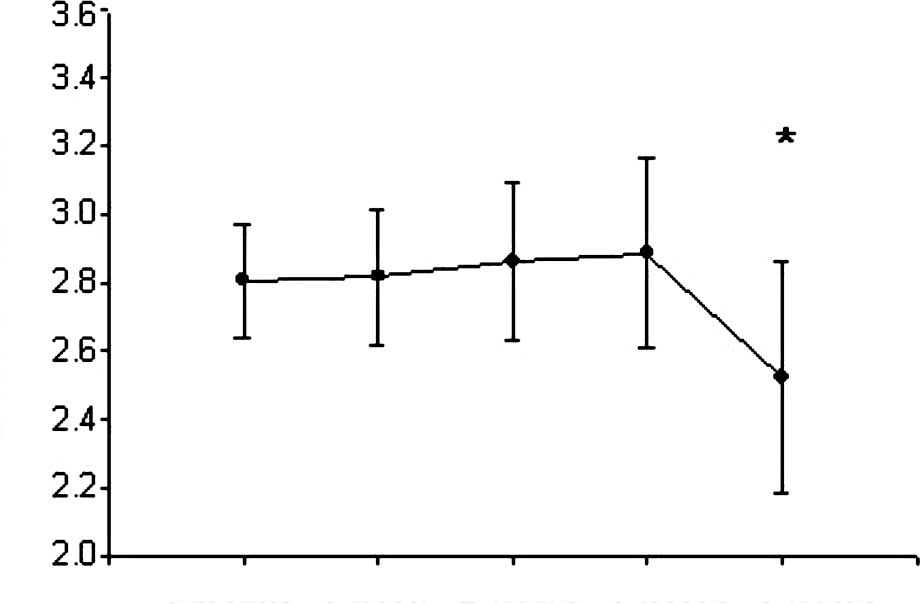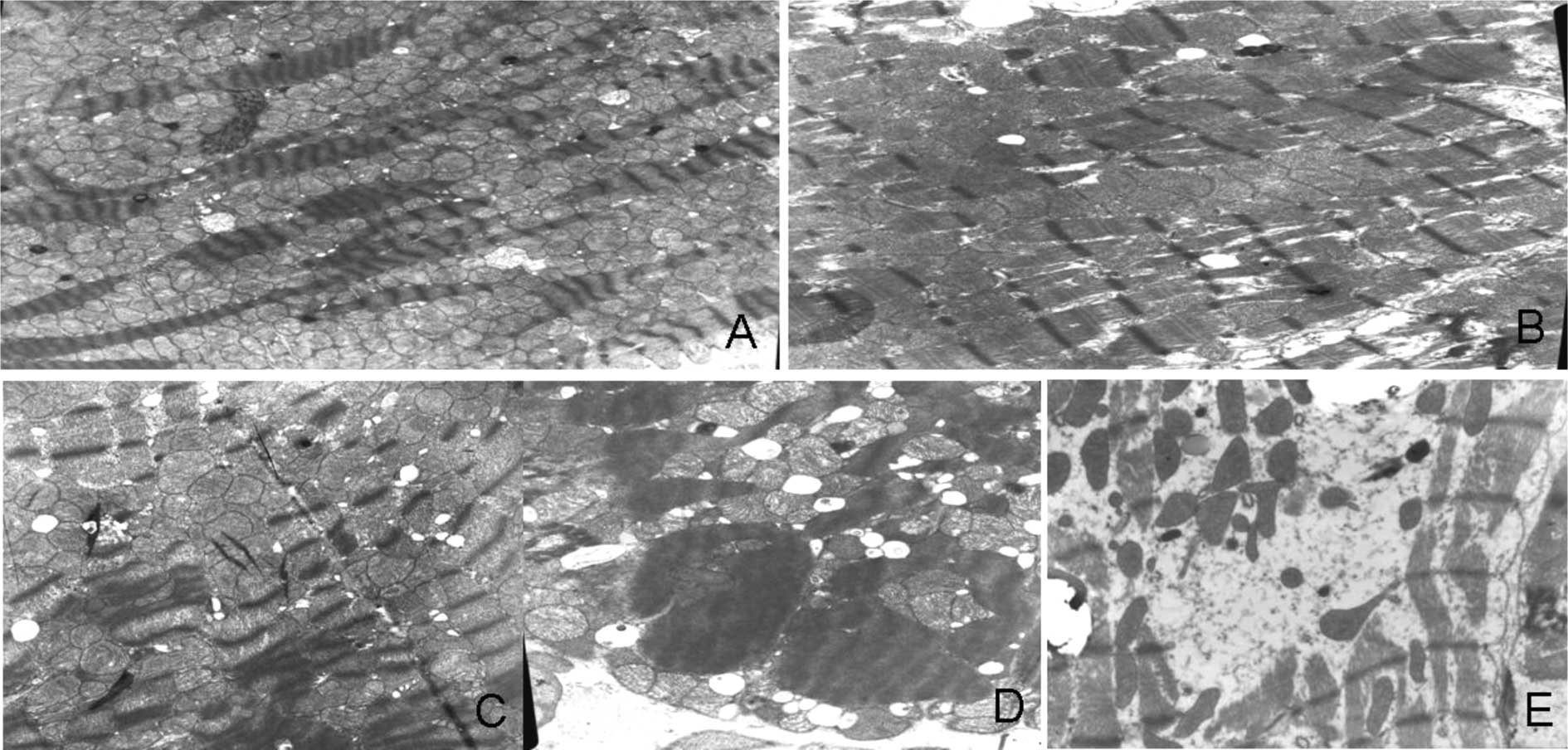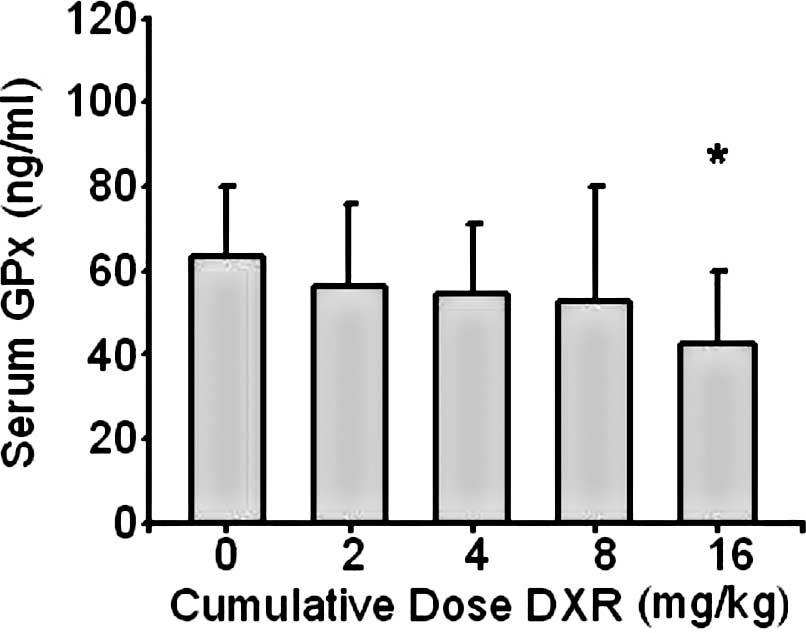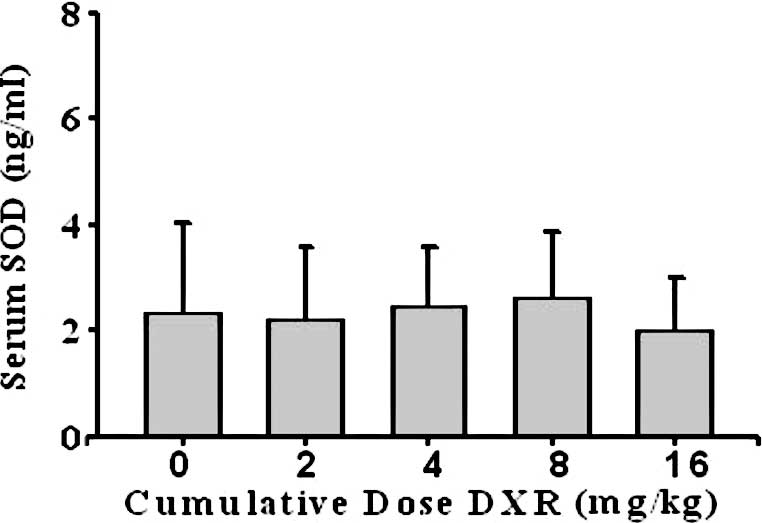|
1.
|
Torrisi R, Cardillo A, Cancello G, et al:
Phase II trial of combination of pegylated liposomal doxorubicin,
cisplatin, and infusional 5-fluorouracil (CCF) plus trastuzumab as
preoperative treatment for locally advanced and inflammatory breast
cancer. Clin Breast Cancer. 10:483–488. 2010. View Article : Google Scholar
|
|
2.
|
Krischer JP, Epstein S, Cuthbertson DD,
Goorin AM, Epstein ML and Lipshultz SE: Clinical cardiotoxicity
following anthracycline treatment for childhood cancer: the
Pediatric Oncology Group experience. J Clin Oncol. 15:1544–1552.
1997.
|
|
3.
|
Alvarez JA, Scully RE, Miller TL,
Armstrong FD, Constine LS, Friedman DL and Lipshultz SE: Long-term
effects of treatments for childhood cancers. Curr Opin Pediatr.
19:23–31. 2007. View Article : Google Scholar : PubMed/NCBI
|
|
4.
|
Li K, Sung RYZ, Huang WZ, et al:
Thrombopoietin protects against in vitro and in vivo cardiotoxicity
induced by doxorubicin. Circulation. 113:2211–2220. 2006.
View Article : Google Scholar : PubMed/NCBI
|
|
5.
|
Jemal A, Siegel R, Ward E, Murray T, Xu J,
Smigal C and Thun MJ: Cancer statistics, 2006. CA Cancer J Clin.
5:106–130. 2006. View Article : Google Scholar
|
|
6.
|
Horacek JM, Vasatova M, Ticky M, Pudil R,
Jebavy L and Maly J: The use of cardiac biomarkers in detection of
cardiotoxicity associated with conventional and high-dose
chemotherapy for acute leukemia. Exp Oncol. 32:97–99.
2010.PubMed/NCBI
|
|
7.
|
Horacek JM, Ticky M, Jebavy L, Pudil R,
Ulrychova M and Maly J: Use of multiple biomarkers for evaluation
of anthracycline-induced cardiotoxicity in patients with acute
myeloid leukemia. Exp Oncol. 30:157–159. 2008.PubMed/NCBI
|
|
8.
|
Faber M, Coudray C, Hida H, Mousseau M and
Favier A: Lipid peroxidation products, and vitamin and trace
element status in patients with cancer before and after
chemotherapy, including adriamycin. A preliminary study. Biol Trace
Elem Res. 47:117–123. 1995. View Article : Google Scholar
|
|
9.
|
Kaya E, Keskin L, Aydogdu I, Kuku I,
Bayraktar N and Erkut MA: Oxidant/antioxidant parameters and their
relationship with chemotherapy in Hodgkin’s lymphoma. J Int Med
Res. 33:687–692. 2005.PubMed/NCBI
|
|
10.
|
Mercuro G, Cadeddu C, Piras A, et al:
Early epirubicin-induced myocardial dysfunction revealed by serial
tissue Doppler echocardiography: correlation with inflammatory and
oxidative stress markers. Oncologist. 12:1124–1133. 2007.
View Article : Google Scholar
|
|
11.
|
Horino N, Kobayashi Y and Usui T:
Elevation of lipid peroxide in children treated with a combination
of chemotherapeutic agents including doxorubicin. Acta Paediatr
Scand. 72:549–551. 1983. View Article : Google Scholar : PubMed/NCBI
|
|
12.
|
Lai RC, Wang XD, Zhang X, Lin WQ and Rong
TH: Heart fatty acid-binding protein may not be an early biomarker
for anthracycline-induced cardiotoxicity in rabbits. Med Oncol.
Feb. 10–2011, (E-pub ahead of print).
|
|
13.
|
Billingham ME, Mason JW, Bristow MR and
Daniels JR: Anthracycline cardiomyopathy monitored by morphologic
changes. Cancer Treat Rep. 62:865–872. 1978.PubMed/NCBI
|
|
14.
|
Wallace KB: Doxorubicin-induced cardiac
mitochondrio-nopathy. Pharmacol Toxicol. 93:105–115. 2003.
View Article : Google Scholar : PubMed/NCBI
|
|
15.
|
Berthiaume JM and Wallace KB:
Adriamycin-induced oxidative mitochondrial cardiotoxicity. Cell
Biol Toxicol. 23:15–25. 2007. View Article : Google Scholar : PubMed/NCBI
|
|
16.
|
Milei J, Boveris A, Llesuy S, Molina HA,
Storino R, Ortega D and Milei SE: Amelioration of
adriamycin-induced cardiotoxicity in rabbits by prenylamine and
vitamins A and E. Am Heart J. 111:95–102. 1986. View Article : Google Scholar : PubMed/NCBI
|
|
17.
|
Sun X, Zhou Z and Kang YJ: Attenuation of
doxorubicin chronic toxicity in metallothionein-overexpressing
transgenic mouse heart. Cancer Res. 61:3382–3387. 2001.PubMed/NCBI
|
|
18.
|
Van Vleet JF and Ferrans VJ: Clinical and
pathologic features of chronic adriamycin toxicosis in rabbits. Am
J Vet Res. 41:1462–1469. 1980.PubMed/NCBI
|


















